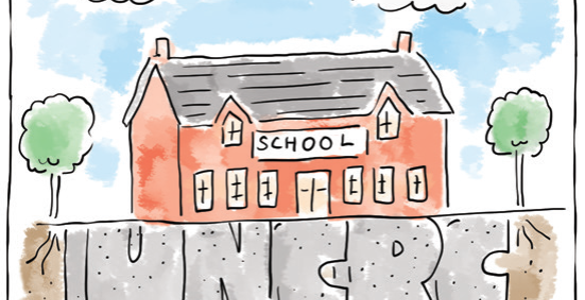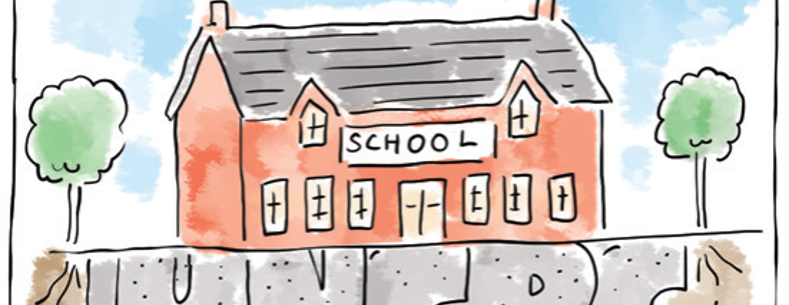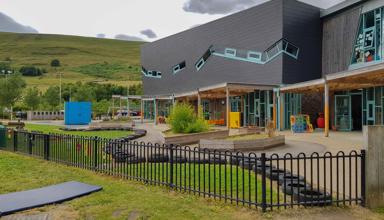Children and young people up to the age of 18 have a range of rights set out in the United Nations Convention on the Rights of the Child (UNCRC), including rights to protection, health, family, education, culture and leisure (see summary of articles (PDF 73.8KB)).
The Convention guides what governments, public authorities and adults must do to enable children to enjoy all their rights. The UK ratified the Convention in 1991 and the National Assembly for Wales unanimously adopted the Convention as the basis of policy making for children in January 2004.
In a written statement on 12 July 2017 the Welsh Government reasserted its commitment to putting the rights of children at the centre of policy making, in response to the UN Committee’s Concluding Observations. The response has been welcomed by the Children’s Commissioner for Wales and the UNCRC Monitoring Group in Wales, whilst also reinforcing the need for greater urgency if the Committee’s recommendations are to be fully implemented as intended.
Due regard to the UNCRC
The UK has not incorporated most of the UNCRC’s provisions into domestic law, and individuals cannot generally rely on it directly in the courts here. The Rights of the Child and Young Persons (Wales) Measure 2011 places a duty on Welsh Ministers to have due regard to the rights within the UNCRC when making decisions, policies and laws. However these duties do not give all children the right to seek direct help in the courts if their individual rights are violated by those delivering services to them.
The Children, Young People and Education Committee recently recommended (PDF 1.86MB) for the Welsh Government to extend the Convention directly into domestic law through placing a duty of due regard to the UNCRC on relevant bodies under the Additional Learning Needs and Educational Tribunal (Wales) Bill. This is already the case with relevant public bodies exercising functions under the Social Services and Well-being (Wales) Act 2014.
In 2012, UNICEF UK commissioned Queen’s University Belfast (PDF 6.07MB) to study countries where there has been full legal incorporation of the UNCRC (Belgium, Norway, Spain). Whilst incorporation meant that the UNCRC was fully part of the domestic legal system, its main value was thought to be in the strong message it conveyed about the status of children and children’s rights, and the knock-on effects for implementation of children’s rights principles into domestic law and policy.
This November 2016 House of Commons Library briefing (PDF 639KB) sets out more detail on legal compliance with the UNCRC.
The United Nations’ view on children’s rights in Wales
The UN Committee, an international panel of experts established in 1991 to scrutinise government’s records on children’s rights, published its findings (PDF 286KB) from its recent examination of the UK and devolved governments during July 2016. These ‘Concluding Observations’ highlight key positives and negatives in terms of the UK’s implementation of the UNCRC and made over 150 recommendations on steps the UK governments should take to advance children’s rights. See our 2016 blog for a summary of the recommendations as applied to Wales.
The 2016 reporting process was the first time the UN Committee had a chance to evaluate Wales’ record post-implementation of the Rights of Children and Young Persons (Wales) Measure 2011.
Whilst the UN Committee cannot force the UK and Welsh Government to change its laws, policies and practice, the expectation is that both Governments will take seriously the Committee’s findings and respond to them quickly and meaningfully, especially in light of the valuable contribution made by children and young people to the reporting process.
More information on the UN reporting process is available here.
The Impact of Brexit on Children’s Rights in Wales
Eurochild and five national partner networks, Children in Wales among them, are advocating for a mechanism to listen to children and young people as part of the Brexit negotiation process; and are seeking assurances that there will be no roll back on the existing rights of children and young people in the UK and across the EU.
The potential impact of leaving the European Union was highlighted by the UN during the Universal Periodic Review, a unique review mechanism of the United Nations which scrutinises states on progress made in implementing their obligations under human rights treaties. On 8 May 2017, the report from the review was published and can be accessed here.
The Universal Periodic Review recommendations sought UK assurances that there is no weakening of human rights protection from any future changes in national legislation, and that human rights achievements are preserved in the context of the withdrawal from the EU.
These recommendations come at a time when the UK has been ranked among the bottom 10 global performers in the arena of improving rights of the child, after it achieved the lowest-possible score across all six available indicators in the domain of Child Rights Environment, according to the KidsRights Index 2017[1].
The Children, Young People and Education Committee will be meeting with the Cabinet Secretary for Communities and Children on Thursday 20 July 2017 to further examine Welsh Government’s stated commitment to children’s rights. Watch proceedings here on Senedd TV.
[1] The Index, which collects data from UNICEF and the UN Committee on the Rights of the Child to identify global trends in the arena of children’s rights protection, rates the extent to which a country has implemented the general principles of the UNCRC and to which there is a basic infrastructure for making and implementing children’s rights policies. The Index methodology is such that extremely poor performances in one domain cannot be compensated by higher scores in other areas, as all children’s rights are deemed to be equally important.
Article by Hywel Dafydd, National Assembly for Wales Research Service.
Image from ‘The Right Way’ by Huw Aaron. Copyright: Children’s Commissioner for Wales.
This post is also available as a print-friendly PDF: Giving due regard? How serious is the Welsh Government taking its responsibilities under the United Nations Committee on the Rights of the Child (UNCRC) (PDF, 195KB)






